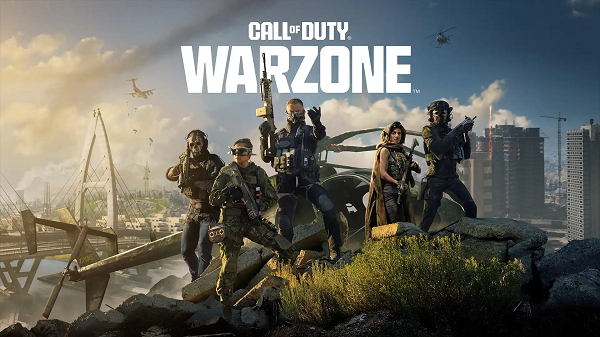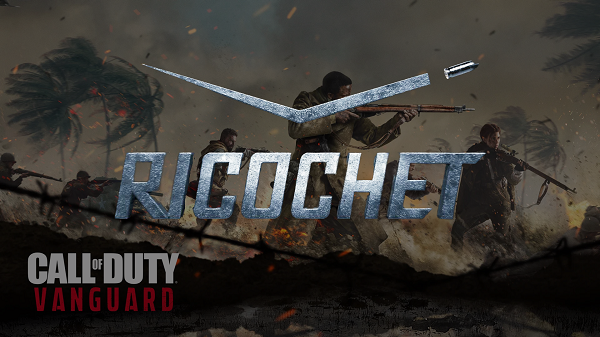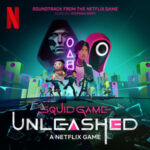
Call of Duty
Popular Now
When Call of Duty: Warzone dropped in March 2020, it quickly became a cultural phenomenon. With its free-to-play model, tight gunplay mechanics, and massive player lobbies, Warzone seemed poised to dominate the battle royale genre. But beneath the thrilling firefights and squad-based tactics lurked a growing menace—cheaters. The issue escalated quickly and has remained one of Warzone’s most controversial and persistent problems. This article explores the war against cheaters in Warzone, analyzing how the issue evolved, the impact it had on the community, the effectiveness of anti-cheat solutions, and where the future lies.

The Emergence of Warzone and Early Cheating Issues
At launch, Warzone was a smash hit. Millions of players jumped into Verdansk, attracted by the promise of fast-paced combat and the prestige of the Call of Duty franchise. However, within the first few weeks, signs of trouble began to surface.
Reports of wallhacks, aimbots, and other third-party software flooded social media. Popular streamers were getting clipped by players who seemed to land every shot through walls or react faster than humanly possible. The community’s early optimism began to wane as matches became plagued with suspicious deaths and impossible plays.
The Root Causes
Warzone’s popularity, combined with its free-to-play nature, created a perfect storm. With no upfront cost and limited anti-cheat measures at launch, the barrier to entry—and re-entry—was almost nonexistent. Cheaters could simply create new accounts after bans and continue disrupting games.

Activision’s Initial Response and Its Shortcomings
Activision and Infinity Ward initially responded with statements and periodic ban waves. “We are watching. We are banning,” they said in their first public message. But for many players, it wasn’t enough. The bans seemed to target only the most obvious offenders, while more subtle cheats continued to slip through the cracks.
These early measures also lacked transparency. Players wanted more than just vague press releases—they demanded visible action. Some began calling for hardware bans or a more aggressive anti-cheat system like what Riot Games implemented with Valorant's Vanguard.
Community Tools as a Stopgap
With official solutions lagging, third-party tools like Warzone Tracker and reporting via killcams became the community’s only weapons. Players began analyzing suspicious stats and posting TikToks and YouTube videos calling out cheaters. It became a kind of crowdsourced justice, but without any real consequences.
The Rise of “Shadow Bans” and Grey-Area Enforcement
In an attempt to stem the tide, Activision quietly rolled out “shadow banning”—a practice where suspected cheaters were placed in lobbies with other suspected cheaters. While this seemed like a clever solution, it came with complications.
Legitimate players started getting shadow banned for reasons as simple as high K/D ratios or rapid kill streaks. The lack of a clear appeals process left many frustrated, and the foggy criteria only added to the confusion. Was it working? Maybe. But it also risked punishing high-skill players unfairly.
False Positives: The Other Side of the Coin
When the enforcement isn't transparent, players lose trust in the system. Several content creators, including big names like NICKMERCS and TimTheTatman, reported being wrongly flagged or affected by these systems. In the pursuit of catching cheaters, Activision risked alienating its core community.
A War of Public Perception
As the issue persisted, Warzone’s reputation began to suffer. Reddit threads, YouTube breakdowns, and tweets calling the game “unplayable” or “infested” grew by the day. It wasn’t just the average player complaining—top-tier streamers began threatening to leave the game entirely.
When streamers with massive followings publicly voice their frustrations, it amplifies the perception of failure. Warzone’s cheating problem became more than just an in-game issue; it was now a PR nightmare.
The Competitive Scene Takes a Hit
Tournaments were constantly under scrutiny, with players accused of cheating mid-event. Some were caught; others weren’t. The lack of real-time oversight during matches meant any player could be doubted. This eroded faith in Warzone as a competitive platform, driving talent and viewers away.
The Ricochet Anti-Cheat Announcement

In late 2021, Activision finally unveiled Ricochet—its proprietary anti-cheat system. It promised kernel-level detection, better real-time banning, and server-side tools to identify and eliminate cheaters before they ruined the experience.
The community reacted with cautious optimism. Kernel-level anti-cheat meant serious business, though it raised privacy concerns. Was this the silver bullet? Or too little, too late?
Initial Results and Skepticism
Ricochet’s deployment was met with some early success. Cheat developers were temporarily disrupted, and ban waves increased in frequency. However, the victory was short-lived. Within weeks, modified cheats began to reappear—some designed specifically to bypass Ricochet’s methods.
The Whac-A-Mole Nature of Cheat Detection
The cheat economy is incredibly adaptive. Developers of hacks began offering “undetectable” options for a premium. Some even included subscription services, customer support, and real-time updates to evade Ricochet’s detection.
This created a cat-and-mouse dynamic where Activision was always one step behind. Every patch and update triggered a new wave of workarounds. Cheaters evolved faster than the systems meant to stop them.
Ricochet Evolves
Despite the setbacks, Ricochet wasn’t static. Over time, it began employing deception techniques—feeding cheaters fake data or nerfing their damage mid-match. This led to entertaining clips of cheaters failing miserably, which provided short-term satisfaction but didn’t address the core problem: they were still getting into games.
The Smurfing and Alt-Account Epidemic
Another layer of complexity came from smurfing and alternate accounts. Players banned for cheating often simply made new accounts. The low cost of entry meant bans had little weight unless accompanied by hardware ID or IP bans.
This allowed cheaters to cycle through accounts indefinitely. In response, some players called for phone number verification or stricter onboarding protocols, but implementation was slow and inconsistent.
Phone Verification and its Shortcomings
Eventually, Activision implemented SMS verification for ranked modes, but it didn’t extend to all queues. Additionally, virtual numbers and burner phones allowed dedicated cheaters to bypass this measure. It was a step in the right direction, but not a game-changer.
Cheating Culture on the Rise
A more insidious issue was the normalization of cheating. In online forums, Discord servers, and even TikTok videos, cheating became a meme. Players openly bragged about their exploits or shared clips showing off their “skills.”
This culture not only emboldened cheaters but also eroded the integrity of the game. For many, the assumption became: if they’re doing it, why shouldn’t I? That mentality is far more damaging than any aimbot.
Stream Sniping and Exploits
Beyond traditional cheats, players also engaged in stream sniping and exploiting in-game bugs for advantages. While not technically “cheating” in the conventional sense, these tactics still compromised fair play. The line between cheating and exploiting became increasingly blurry.
Modern Warzone and Ranked Play: A New Hope?

With the release of Warzone 2.0 and ranked modes, Activision has doubled down on its anti-cheat efforts. Ranked play comes with stricter penalties, better monitoring, and more frequent ban waves. Ricochet continues to evolve, and more high-profile cheaters are being publicly exposed.
The tide may be turning, but cautiously. Ranked matchmaking helps isolate competitive players from casual queues, and harsher punishments seem to be making a dent. However, cheaters still persist—albeit more discreetly.
Is the Battle Finally Turning?
While cheating hasn’t been eradicated, it's less omnipresent than during Warzone’s early days. The battle is far from over, but systems are finally in place that give players a fighting chance at fair competition. Still, trust takes time to rebuild.
Conclusion: Warzone’s Fragile Future
The cheating crisis in Warzone has been a long, complicated saga. What began as a nuisance evolved into a full-blown epidemic, shaking the foundation of the game’s integrity. From vague ban waves to advanced kernel-level detection, Activision has spent years trying to contain the issue.
Progress has been made, but the problem persists in new forms. As long as there are incentives and vulnerabilities, cheating will never fully disappear. However, the lessons learned from Warzone’s turbulent years have set a precedent for how seriously developers must take anti-cheat measures from day one.
Warzone's future depends on transparency, adaptability, and a commitment to preserving fair play. Only time will tell if the game can overcome the scars of its cheating-ridden past and regain the full trust of its community.
















